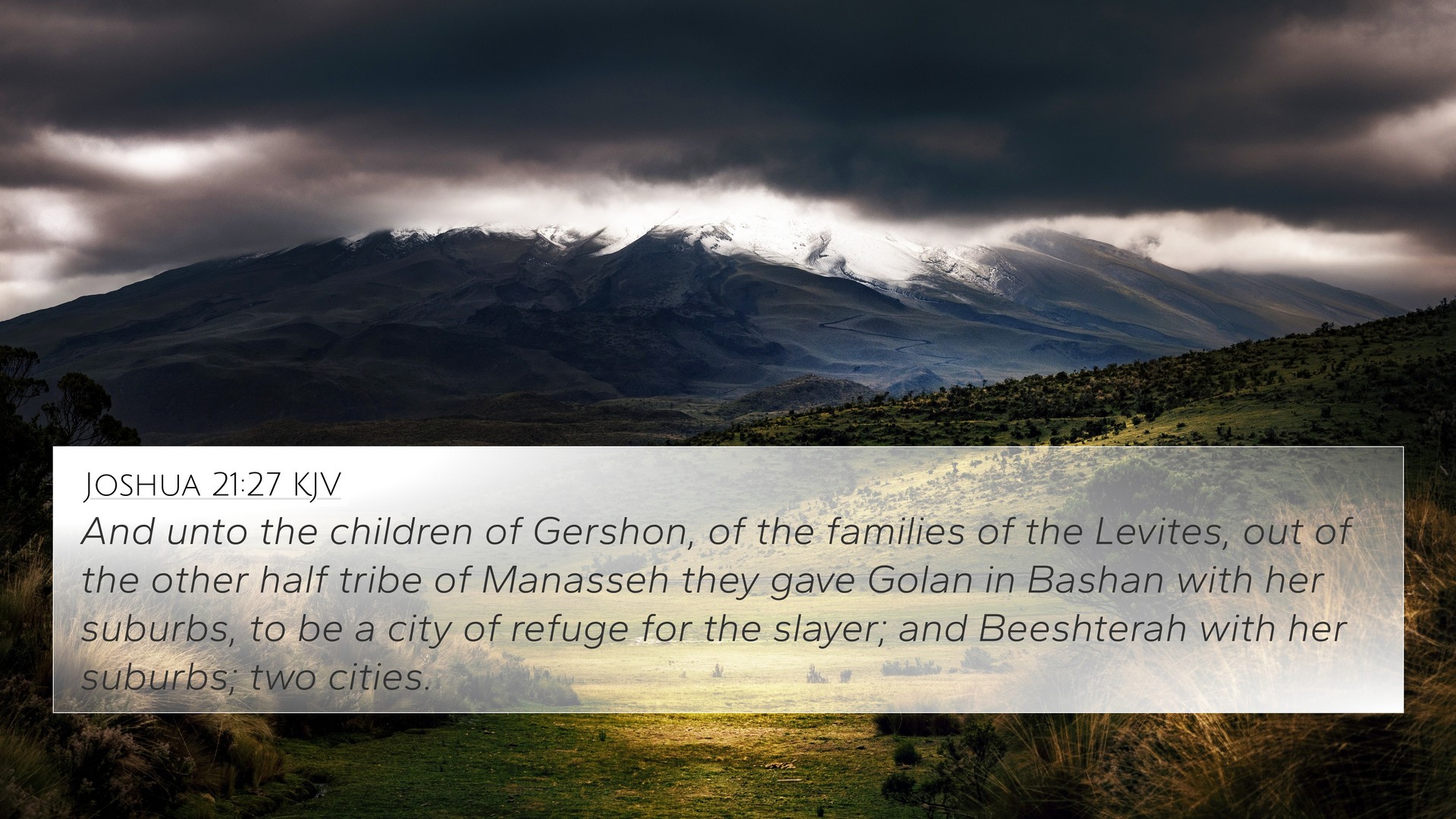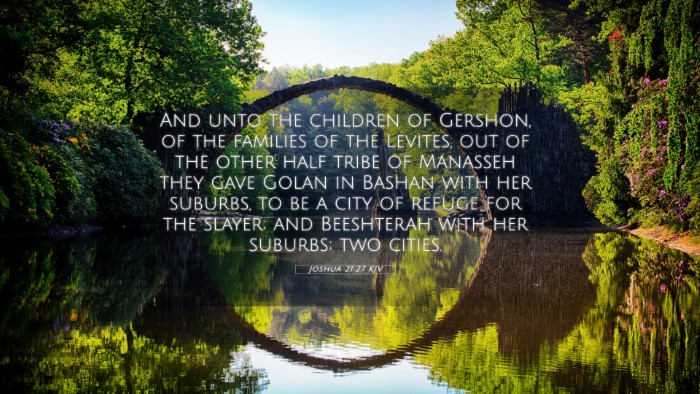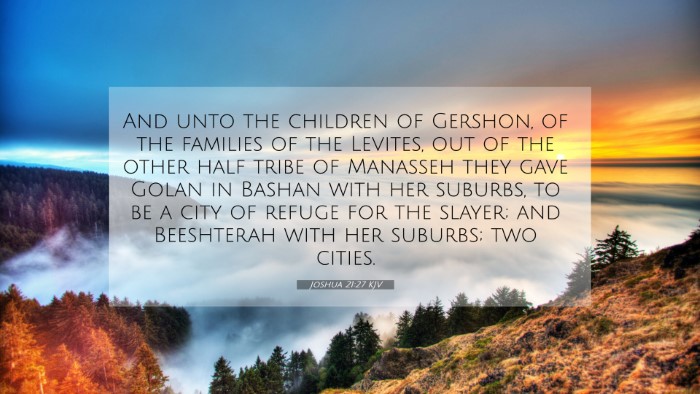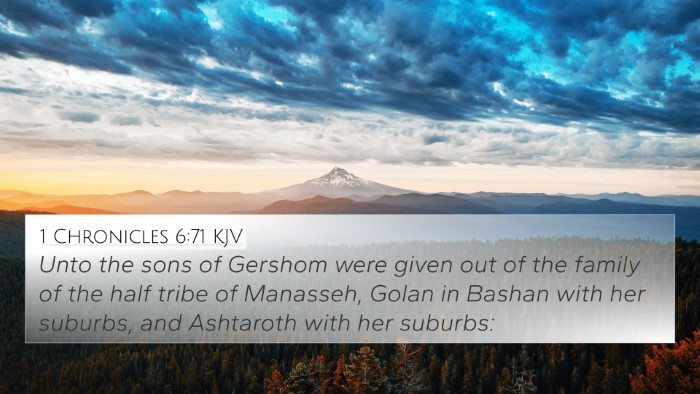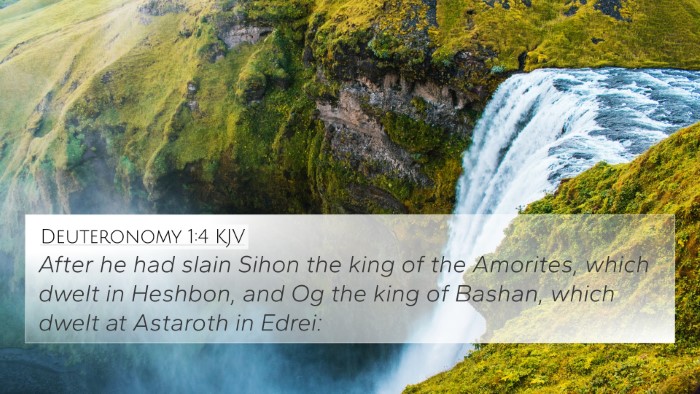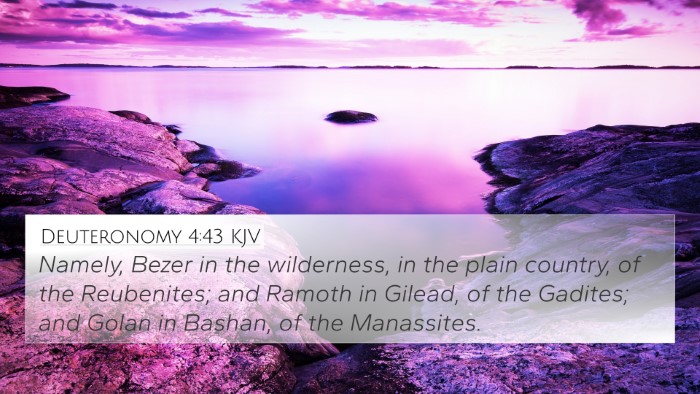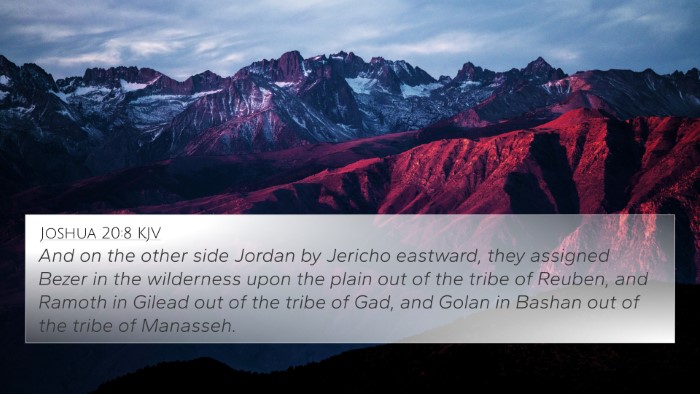Understanding Joshua 21:27
Joshua 21:27 states:
"And out of the half tribe of Manasseh, Gilead and the city of refuge for the manslayer, and the city of the Asherites, and all their cities, and the remainder of the cities of the Levites that were left from all the rest of the tribes." (Joshua 21:27)
Context and Overview
This verse is part of a crucial chapter that deals with the allocation of cities to the Levites among the tribes of Israel. The underlying themes include the sanctity of refuge cities, the role of Levites, and God's provision to His people.
Meaning and Interpretation
The city of refuge mentioned in this verse holds great significance. According to the commentaries:
- Matthew Henry: Emphasizes the importance of these cities for protection, where individuals accused of manslaughter could flee. This demonstrates God's justice and mercy.
- Albert Barnes: Highlights that the cities allocated for the Levites exemplify God's method of providing for those dedicated to spiritual service, ensuring their needs are met.
- Adam Clarke: Points out the inclusion of Gilead as a strategic location which implies the need for safety and refuge among the people, suggesting the broader themes of mercy and sanctuary in God's law.
Thematic Connections
Joshua 21:27 connects to various themes seen throughout biblical texts:
- Sanctuary and Safety: The concept of refuge cities is echoed in Numbers 35:6-34, highlighting God's provision of safety for those in distress.
- Levites' Role: The Levites are continually emphasized in both Joshua and Numbers, reaffirming their unique role in the Israelite community (Exodus 32:29).
- Grace and Mercy: The cities of refuge symbolize God's mercy, which is evident in Deuteronomy 19:1-13, where the laws regarding cities of refuge are laid out to protect the innocent.
Cross-References
To deepen our understanding of Joshua 21:27, here are interconnected verses that elaborate on its themes:
- Numbers 35:6-34: Discusses cities of refuge and their purpose.
- Exodus 21:13: Establishes laws concerning unintentional manslaughter, providing context for the refuge cities.
- Deuteronomy 19:1-13: Details the criteria and functionality of refuge cities.
- Leviticus 25:32-34: Speaks about the Levites and their cities, reinforcing their significant role within Israel.
- Psalms 46:1: "God is our refuge and strength," illustrating the theme of safety and divine protection.
- Hebrews 6:18: Relates to the hope and refuge found in God's promises, akin to the purpose of the cities of refuge.
- Matthew 5:17: Jesus states He came to fulfill rather than abolish the Law, including the principles pertaining to refuge and Zion.
Conclusion: Inter-Biblical Dialogue
The implications of Joshua 21:27 extend far beyond its immediate context. The interplay between the Law and grace, justice and mercy, echoes through the scriptures, showcasing the multifaceted nature of God's covenant with His people.
Tools for Further Study
For those wishing to delve deeper into cross-referencing and thematic analysis, employing tools such as a Bible concordance or cross-reference Bible guide can greatly enhance understanding. Readers are encouraged to look for:
- How to find cross-references in the Bible: Keeping an eye out for keywords and recurring themes.
- Bible cross-reference guide: Resources that help trace connections between Old and New Testament scriptures.
- Cross-referencing Bible study methods: Techniques to track related verses and themes for deeper insight.
Final Thoughts
Joshua 21:27 opens a window into God's profound care for His people, emphasizing the interconnectedness of scripture through its themes of refuge and priestly service. Embrace the opportunity to explore the rich tapestry of God's word through these links and connections.
